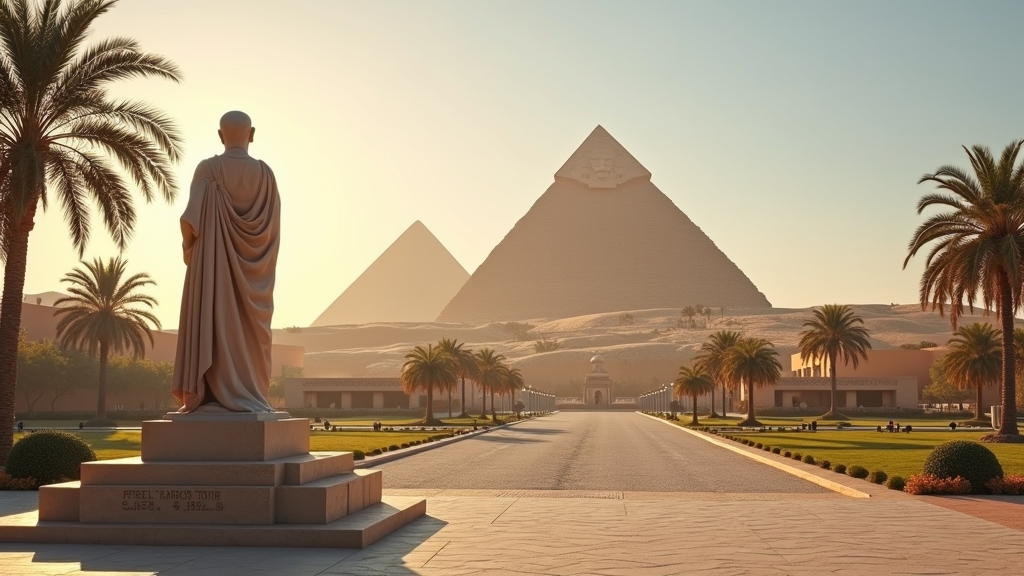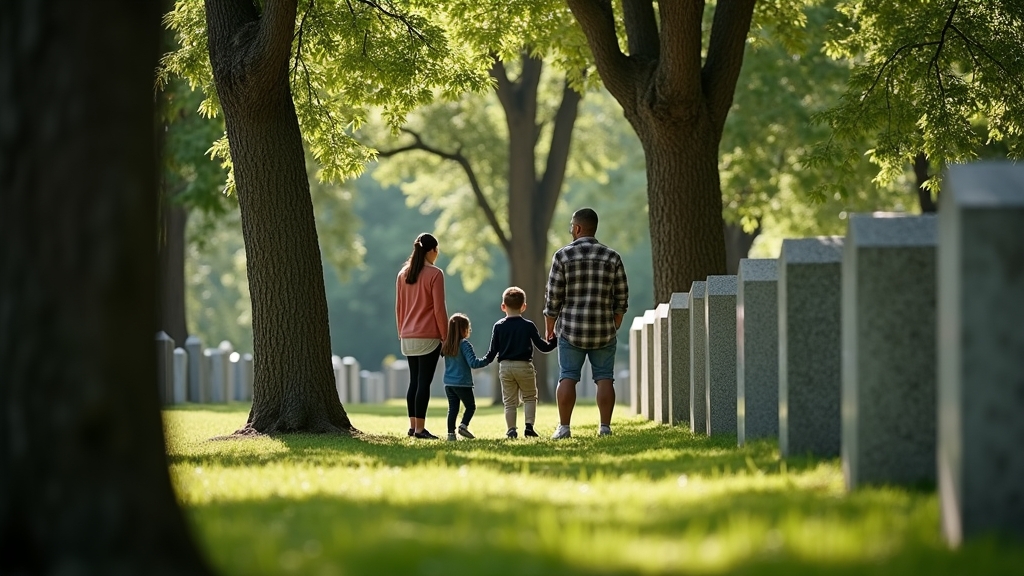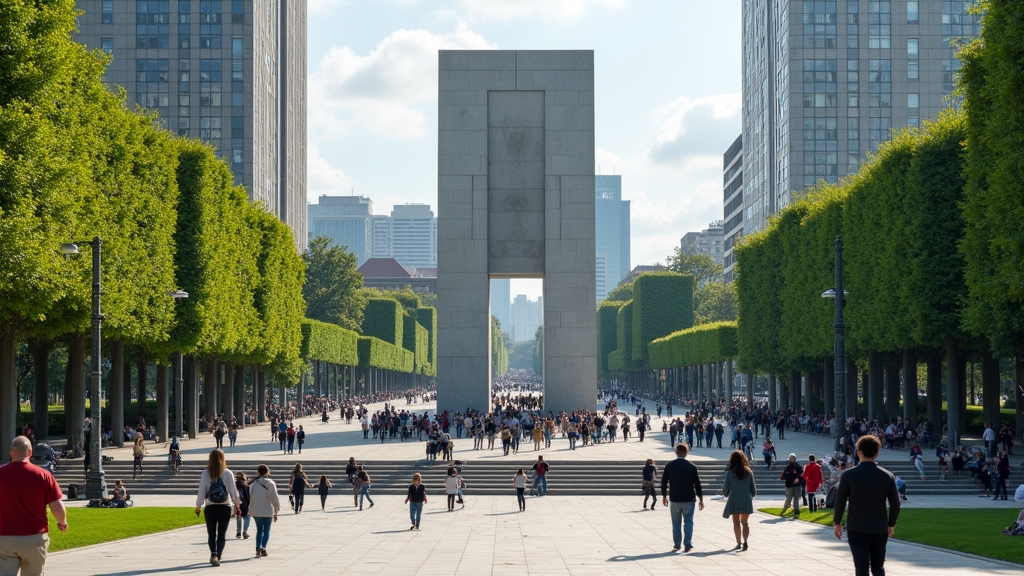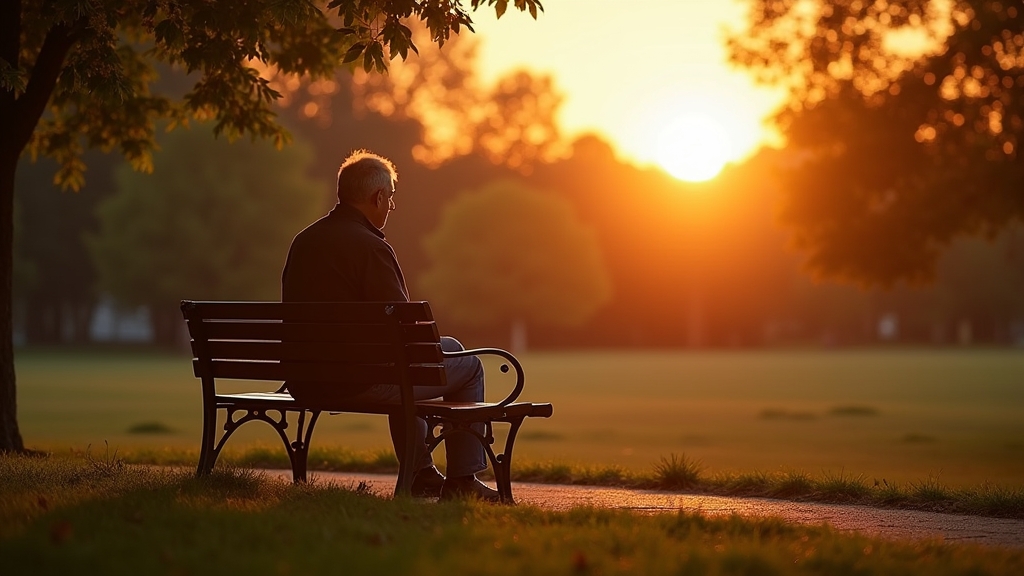Not many events in life cause as much of a whirlwind of feelings and intense grief as the death of a loved one. A memorial service is important because it holds special meaning not only for our lost loved ones and the grieving family but for the community at large too.
Continue reading to learn more about how your loved one’s life is celebrated through a funeral or memorial service.
For Your Deceased Loved One
Knowing Their Legacy Won’t Be Forgotten

A common belief that plagues humanity is the fear of being forgotten. On average, this usually happens around 100 years after a person’s death.
Even extremely well-known historical, political, and cultural icons will eventually be forgotten to time. Death is the ultimate equalizer.
Despite this, we can still preserve someone’s memory for a while longer. Monuments are a perfect example of the human spirit striving to survive despite the inevitable erosion of time, dating back from the great pyramids of Egypt in antiquity all the way to the memorial of Columbia’s fallen crew on Mars.
Knowing that active steps are being taken to honor their memory can ease these fears and give some peace of mind to the person who’s about to pass away. Knowing that their legacy will go on is a comforting thought to many.
The Commemoration Of A Life Well-Lived
Life is precious. Even if you don’t think your life is very exciting, every human being’s life is comprised of different values they hold, lessons they learned, and stories that are worth telling.
Everyone lives their life in a unique and honorable way. Experiencing struggles and obstacles doesn’t make someone any less valuable. In fact, people who struggle in life oftentimes have the wisest lessons to teach us.
The celebration of a life well-lived is what memorialization strives to accomplish. It lets the individual in question know that they’re valued, and their memory is worth being preserved.
For The Grieving Family
The Creation Of Central Sites For The Family To Visit

Cemeteries are one place where the family can gather and unite to remember the deceased. They are peaceful, neutral sites where families can reminisce and share memories of their deceased loved ones.
Cemeteries in particular are quiet and surrounded by foliage and trees, which has a calming effect.
They’re the perfect place to reflect without any distractions. This calm environment is so effective that families often say that they miss their departed more when they’re away from the cemetery.
A memorial can be a healing place for this collective loss. Whether it be erected monuments, granite headstones, or a home memorial, it’s good to have a place you can just visit and think about the grief that you’re experiencing. Acknowledging your pain and reflecting on it is one of the healthiest ways of coping with grief.
If your loved one has been cremated, this doesn’t mean they can’t be memorialized. They’re not mutually exclusive, and you can still memorialize someone even with just their remains. Shrines and altars are common types of memorialization that can be done at home.
Helping Living Relatives Through The Grieving Process
The grieving process has many forms, and all of them are valid for the grieving individual. Memorialization can help relieve some of the pain of grief and loss.
A funeral or memorial services is not only comforting superficially. These rituals have an essential role in the grieving process.
Processing Feelings Of Grief
As the relatives of the departed are thinking about what form the memorial should take to best honor their legacy, they inevitably think of their deceased loved one. Survivors can integrate the events into their memory and remember what they felt like and why.
Surviving friends and family need to make space for their feelings. Grief is a complex and painful emotion, so it’s advisable to let yourself feel whatever you feel, without any guilt or shame.
Having A Designated Place And Time To Grieve
Visiting a memorial also gives you a designated space and time to grieve. Many find that they can barely stand to process their grief.
Wanting to push negative emotions out of your mind in times of stress is a natural desire. This is especially true in our modern world, where we can’t even catch a break to process major life events like the death of a loved one.
Having a special place to visit helps you set aside some time to just feel your emotions, whatever they may be. The person might be dead and buried, but our grief is proof of our steadfast love for them.
This is how remembrance and memory help people process their emotions while actively doing something to prolong the memory of their loved ones. In this way, memorialization can help people come to terms with death healthily and productively.
A funeral or memorial service are good ways to participate in mourning and memory. Grief is difficult, but focusing on honoring the life of the departed can be healing for the survivors.
It Brings Focus To The Positive
Understandably, there are a lot of negative feelings associated with someone’s passing. There’s nothing more painful than mourning the death of someone you love.
But as different complex emotions battle within you, it’s also important to remember the good times you had. Memorialization allows you to think about all how your deceased loved one was intelligent, kind, or unique.
Getting Creative With Our Appreciation
Memorialization usually requires you to think about something positive relating to the departed person. You might want to write a note about what they were like, how much you loved them, or something else unique.
Just talking about our loved ones is a form of memorialization. Talking about what they were like, sharing stories about them, and reminiscing about all the good times you had together cements that individual into your memory.
An example is park benches that have a small plate with an engraved note. The note usually says something about what that park meant to the deceased person, how often they went, and what they were like.
It’s a good example of a memorial that focuses on something positive, and a good place for surviving friends and family to sit and look at the world as their loved one once did.
For Society And Future Generations
It Inspires Empathy And Introspection

When memorials are engraved into our daily life, they make us think about life, death, and the people we hold dear. Thinking about death can be sobering or uncomfortable, but its importance lies in our introspection.
A roadside memorial of some flowers, a little picture, and a heartfelt personal message left by the family or friends of the deceased person creates introspection.
Knowing that this is the last place on Earth where this person was alive is a depressing thought, but we also think of their loved ones who decided to memorialize this person’s passing.
Becoming Aware Of The Inevitability Of Death
Thinking about death is good because it is inevitable and a very normal part of life. Seeing a memorial makes us think about the kind of person the deceased individual might have been, and how similar they might have been to us. This invokes empathy.
They walked the same road that you’re walking on and looked at the same buildings. They had people in their life who cared about them and made sure to let others know they existed, died here, and were missed. A memorial says “I will not forget you.”
Being alive is such a miracle that we forget that we spend most of our time being dead before we’re born and when we finally expire.
The shock of how quickly our lives can be snuffed out is similar to the shock you’d experience if you threw a rock at a building and it came crashing down.
We are fragile vessels holding something precious. That’s the reason that a loved one’s death feels so unbelievable.
It Strengthens Urban Memory
In most cases, memorials aren’t funded by the government. Rather, they’re designed and erected by members of civil society. This fact by itself means that memorialization is derived from the public and is an active form of expressing culture and identity.
Memorials can be integrated into the locals’ collective memory through everyday life. For them, it adds cultural and spiritual richness to the locality. For the survivors, it’s reassuring to know that their departed loved ones also exist in other people’s memory.
Monuments Shape Society’s Values And Perception Of Past Events
Memorials and monuments reflect the characteristics and values of an entire country. They’re landmarks of history and change, connecting past and future generations. A memorial is a reminder, and it’s good to be reminded of both the good and the bad of your region’s history.
It’s not uncommon to come across monuments that honor those who fell in wars, like Holocaust memorials of World War II, historical figures that gave their lives for the sake of others, fallen war heroes, generals, and various other memorials that reference tragedies or wars. These memorials serve both an emotional and an educational purpose.
Our Perception Of Our History Shapes Our Present
This is important because our memory of the past influences our choices and beliefs in the present.
Whenever there’s a movement to get rid of a monument or memorial, there’s always some resistance from the public, despite the kind of person that was memorialized.
Memorials inspire respect and comradery in the general population, especially memorials of tragedies and historical figures. The power of memorialization lies in reaching the hearts of the people well after someone’s death.
Memorials Help The Population Recognize And Come To Terms With Conflict
Right after violent conflicts, we see memorials pop up, especially in capitals. Memorialization is a way to recognize the struggle that the country went through, as well as its victory or defeat.
Memorializing Well-Known Figures
Similar to how memorials help individuals come to terms with loss, they serve a similar function for large groups of people too. The general population might not have a personal connection to the memorialized person, but the connection is still here.
Humans like to honor the connections they make. It seems to be an instinctual desire we have, social creatures that we are, to memorialize those who are important to us.
When you lose someone valuable to you, like with the death of actors, comedians, and idols, it feels appropriate to respect that individual, as they inspired or made you happy in the past.
Our “Never Again” Events
For violent conflicts, having a reminder of the times that just passed is a good way to inspire a sense of unity and togetherness in the community. It also helps the population process any negative emotions.
As more and more time stands between the violent event and the present, memorials become more educational than evocative. They symbolize the pain that violence can cause, which in turn makes us more cautious and diplomatic in the future.

Final Thoughts
Coping with the fact that your life goes on after your loved one’s has ended is anything but easy.
Experiencing loss of interest in your daily activities and not understanding how you’re supposed to simply continue as usual are characteristic symptoms of anyone experiencing grief.
The grieving process looks and feels different for everyone. There’s no right and wrong way to grieve, but you can integrate memorialization into your grieving process.
Memorials survive long after a funeral or memorial service ends, and so does the memory of your loved one. It’s a way to both celebrate their life and grieve their death.
The urge to remember is a very human one, and there is a reason it’s been honored for millennia.
